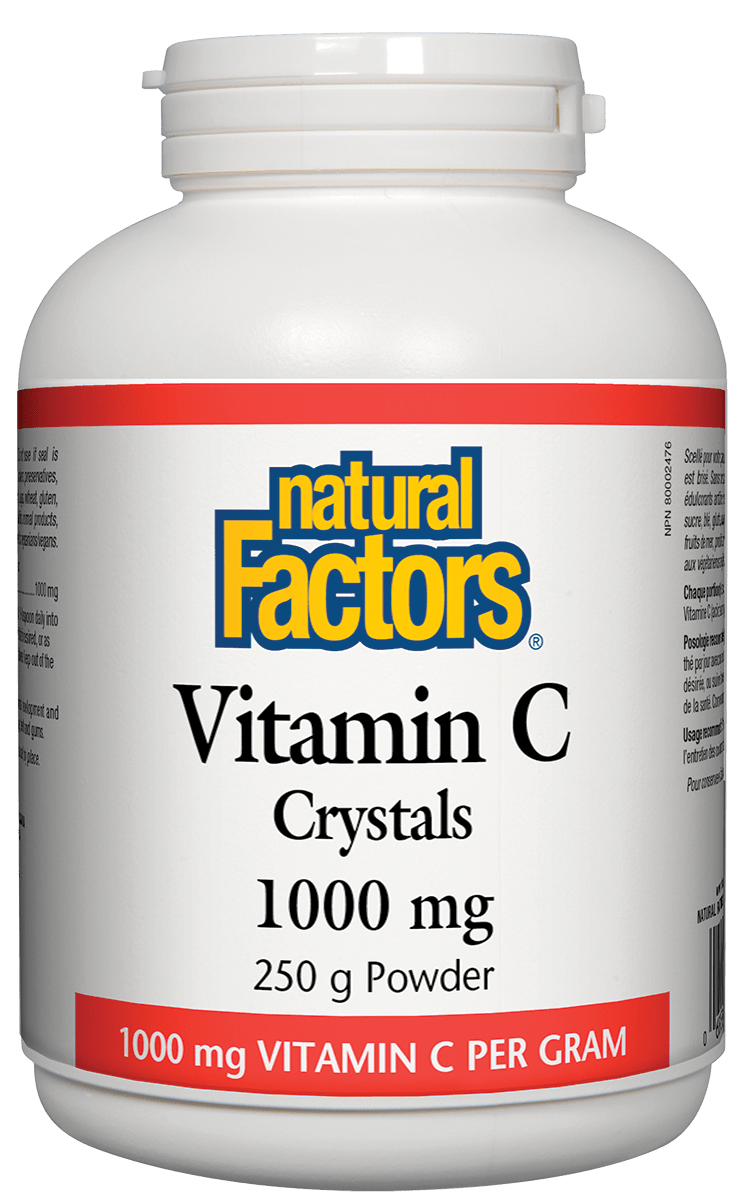Natural Factors
Natural Factors Vitamin C Crystals, 250g
Natural Factors Vitamin C Crystals, 250g
SKU:NF1361
NPN: 80002476
Couldn't load pickup availability
- Mixes easily in water or juice
- Enhances immune system function
- Promotes wound repair
- Builds strong, healthy bones and teeth
- Powerful antioxidant
- Improves circulation and the appearance of varicose veins
Ingredients
Each serving (1/4 tsp) contains:
Vitamin C (ascorbic acid)
1000 mg
Dosage
Stir ¼ teaspoon daily into juice or any other liquid or food that is desired or as directed by a health care practitioner.
Allergy Information
Contains no artificial colours, preservatives, or sweeteners; no dairy, starch, sugar, wheat, gluten, yeast, soy, corn, egg, fish, shellfish, animal products, salt, tree nuts, or GMOs. Suitable for vegetarians/vegans.
Caution
Always read the label for full list of cautions and warnings. Please consult a health care practitioner before use.
Keep out of reach of children.
Safety sealed with printed inner seal. Do not use if seal is broken or missing. Keep tightly closed. Store at room temperature out of direct sunlight.
Share




